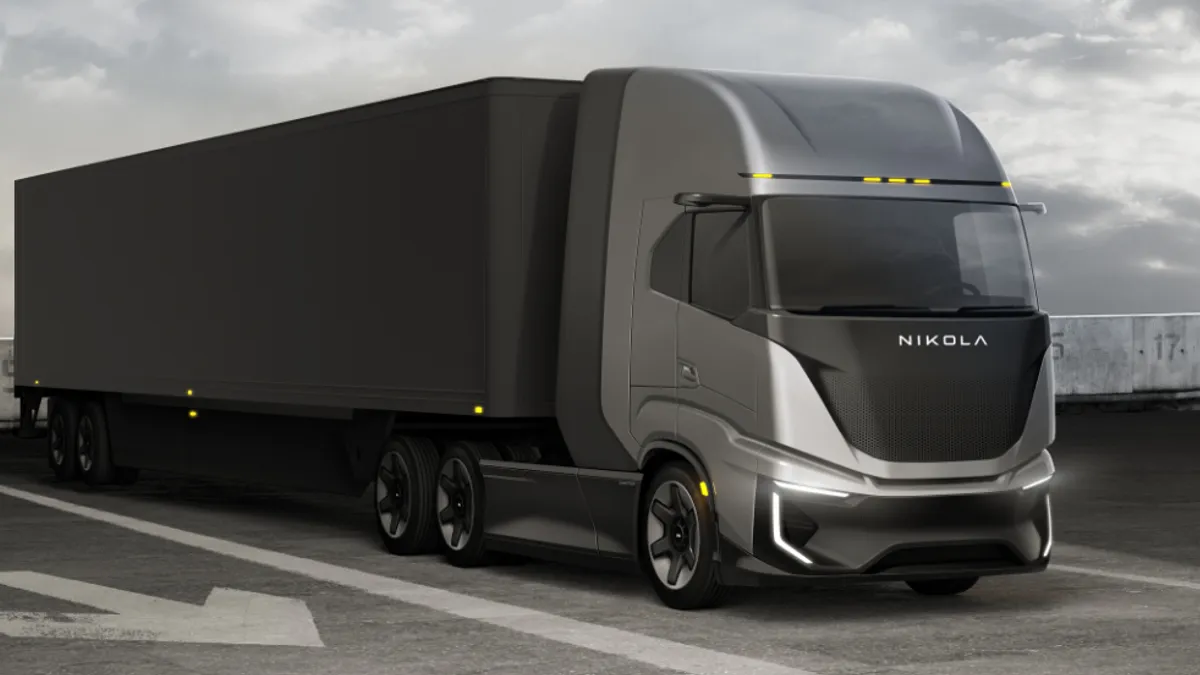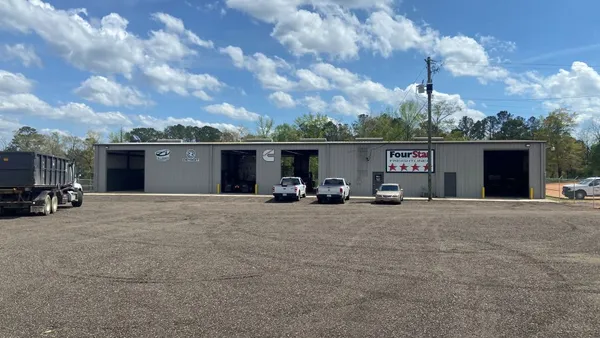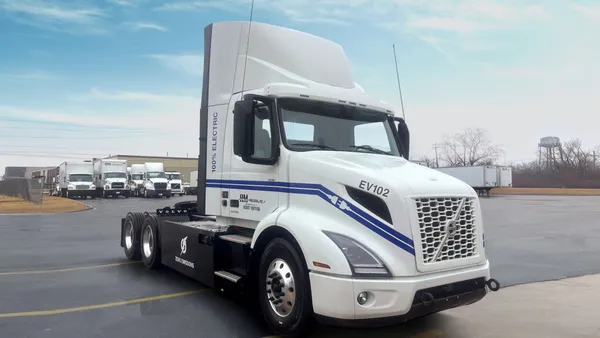Dive Brief:
- Nikola expects to deliver fewer battery-electric Nikola Tres than originally planned for 2021, CEO Mark Russell said on the company's earnings call Thursday. The OEM has not been spared by the global semiconductor or battery-cell shortages. "The pandemic has caused significant supply chain disruptions into tier 2 and tier 3 and the supply base," Russell said.
- Nikola doesn't anticipate final allocation commitments from battery suppliers for 2021 until the end of the next quarter. It plans to launch the Nikola Tre battery-electric vehicle in North America this year, delivering the first to a launch customer in Q4, Russell said, though it has not solidified who that customer will be.
- On Tuesday, Nikola released details about its fuel-cell electric vehicle plan for North America. While the Tre BEV is meant for regional hauls, the extra range granted by hydrogen fuel will be used in two FCEVs: A regional Tre variant that can go up to 500 miles, and a sleeper variant called Nikola Two that has a range up to 900 miles.
Dive Insight:
Nikola had a particularly rocky end to 2020. As founder Trevor Milton resigned amid criticisms, and partnerships crumbled, the OEM restructured and realigned, Russell said during the call. But those controversies, mixed with supply chain troubles, caused delays.
"Obviously, what happened last fall gave everybody a pause," Russell said. "At this point, I think the people have seen that we've gotten refocused, and we're back to execution mode. And that has increased the intensity of discussions with potential partners."
He also mentioned the electric-truck market is getting more crowded, but it ups Nikola's credibility and brings gravity to conversations with potential partners, new ones and companies whose discussions got put on hold.
"We're back to serious negotiations ... now that the uncertainty of last fall is pretty much behind us," he said. Russell expects to have a launch customer for its Tre BEV next quarter.
But Nikola does not anticipate the slowdowns will postpone any milestones in its FCEV plans. Commercial production isn't set to start until 2024, and Russell said extenuating circumstances should regulate within the next two years. Prototype testing and fuel-cell validation are scheduled to occur this year, with prototype road trials beginning in early 2022
Anheuser-Busch, which Russell referred to as a long-time partner on FCEV development, plans to use the Nikola Tre FCEV and Nikola Two.
"That's why we released that portfolio requirement, because we were going to have a 900 mile, at least, variant of the Nikola 2 sleeper and that will cover the longest routes that AB has in North America," Russell said.
Range has been key for the North American market, he added. The short-range BEV has been an easier sell in Europe, while Nikola has had to adjust its strategy for the U.S.
Trucking firms expressed interest in the Tre, but asked for a version that could go longer between charges without taking a hit to the payload, which is one concern with long-range BEVs. U.S. fleets also asked for a model that was more aerodynamic, as the country has higher speeds, compared to Europe, Russell said.
The Nikola Two is expected to have a 900-mile range — for now.
"I'm personally not satisfied with that. I want to push it even further if we can," Russell said. "I would like to get to that 1,000-mile number they got to get in Europe for their natural gas truck they've got there. But we're right now at 900 miles, and we'll keep pushing that envelope as we get closer to the introduction there."
While electric vehicles deal with battery shortages, hydrogen's infamous obstacle is fueling infrastructure. Nikola plans to launch fuel-cell and hydrogen storage systems in 2023, which are designed to be scalable to accommodate the Nikola Two, Global Head of FCEV Jason Roycht said in a press release.
"Our plan is to enter the market in steps," said Roycht. "Utilizing common components and systems for hydrogen propulsion will support greater economies of scale and also allow Nikola to continuously expand and adapt our FCEV truck portfolio."












